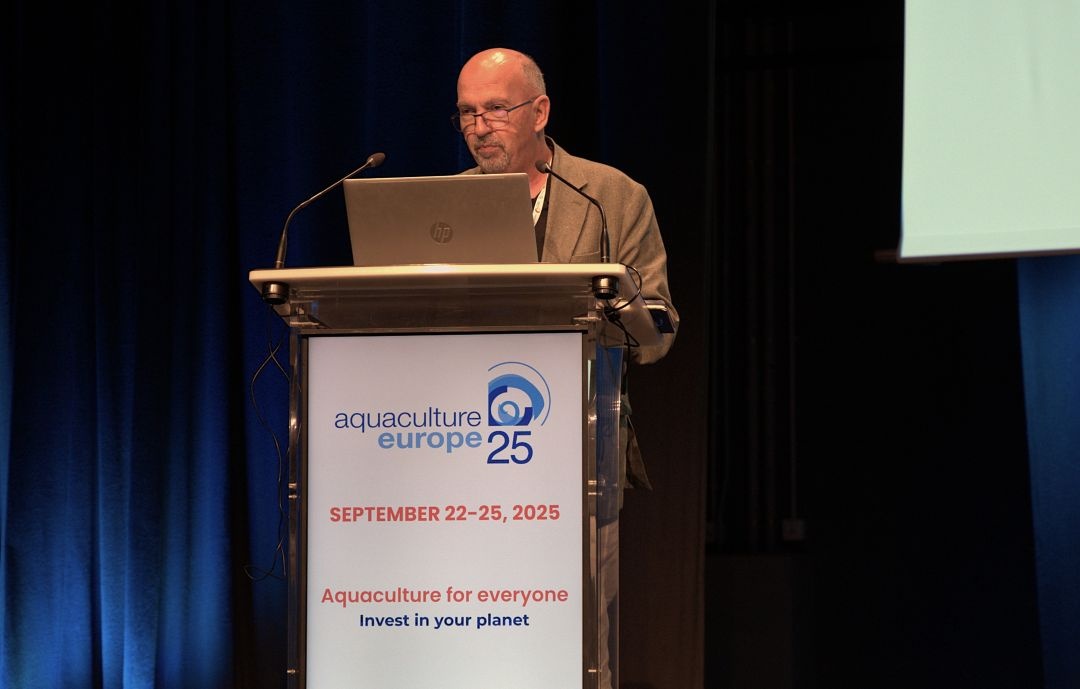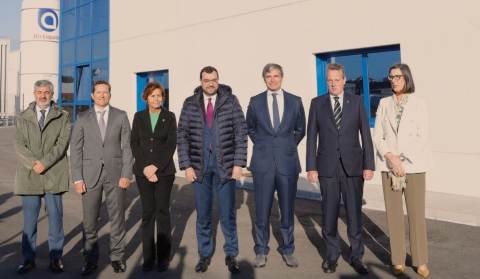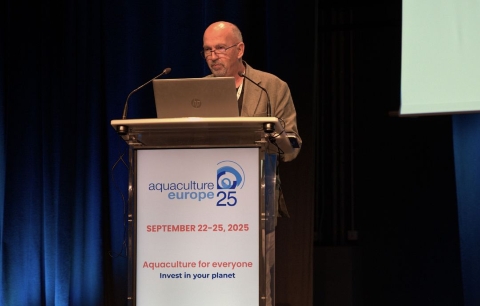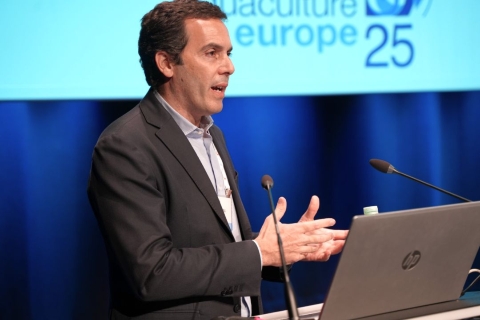 Jaume Pérez,
Jaume Pérez,
Aquaculture Europe 2025 – Valencia stayed true to its motto “Aquaculture for Everyone” by bringing together 3,115 participants from 97 countries at the city’s Conference Centre, making it the largest edition in the event’s history.
Held from 22 to 25 September, the congress was organized by the European Aquaculture Society (EAS) with the Torre de la Sal Aquaculture Institute (CSIC) as local host. Months in advance it had already sold out, with 155 international corporate exhibitors confirmed. According to the organisers, the economic impact on the city exceeded €2 million, reinforcing Valencia’s status as a primer congress destination.
The scientific programme featured 1,254 abstracts, resulting in 597 oral presentations and 571 e-posters, across 57 thematic sessions. Academic participation was strengthened by 381 students, while outreach activities involved 90 local school pupils, helping introduce the youngest generations to aquaculture.
In his remarks, Jaume Pérez, President of the Organising Committee reflected on what made the event unique: “This conference has brought together not only experts and industry, but also a community committed to advancing aquaculture, sustainability and innovation here in Spain and across Europe. From the very beginning, with excellent keynote lectures, we have shared ideas, explored solutions and debated the challenges ahead. It is clear that the future of aquaculture depends on collaboration, vision and dedication.”
Closing the event, Spain’s Secretary General for Fisheries, Isabel Atime, emphasized the country’s leadership role in Europe: Spain has taken a step forward with its national strategy, aligned with the EU Strategic Guidelines 2021-2030, to drive a more sustainable, competitive and resilient aquaculture, key to food security.”
Meanwhile, EAS Executive Director Alistair Lane noted: “It has been a great event. More than 3,000 people, a record for Aquaculture Europe. And what better place to do it than Spain, where aquaculture is firmly on the map – diverse and well-developed.”
Research excellence was also recognized with awards for the best e-posters. The Best Student e-Poster prize went to Paolo Gattuso for his study “Sporeforming bacteria as a probiotic in gilthead seabream (Sparus aurata): effects on growth and appetite regulation.” The Best Non-Student e-Poster was awarded to Mercedes Blázquez et al. for the work “Linking behaviour disruption to epigenetics, transcriptomics and oxidative stress in juvenile seabass (Dicentrarchus labrax) exposed to cadmium and ciprofloxacin.”
Alongside the main congress, business meeting were held as well as the 82nd Spanish’s National Advisory Board on Marine Aquaculture (JACUMAR) and the 16th Spanish’s National Board on Freshwater Aquaculture (JACUCON), which approved advances in spatial planning and Spain’s national aquaculture strategy, strengthening the sector’s role in sustainability, innovation and the circular economy.
The scientific programme also featured leading international speakers such as Carlos M. Duarte, who underlines aquaculture’s role as a pillar of global nutrition, and Elisabetta Giuffra (INRAE, France), who presented the latest developments in genomics applied to aquaculture species.
Integrated aquaculture systems, circular economy approaches and technological innovations to boost productivity with reduced environmental impact were also discussed.
Market insights were provided by Joan Riera (Kantar Worldpanel), with an in-depth analysis of aquaculture product consumption in Spain and across Europe.
In short, AE2025 Valencia demonstrated that aquaculture is an essential industry to feed a growing planet, consolidating its position as Europe’s most influential international gathering for the sector.



